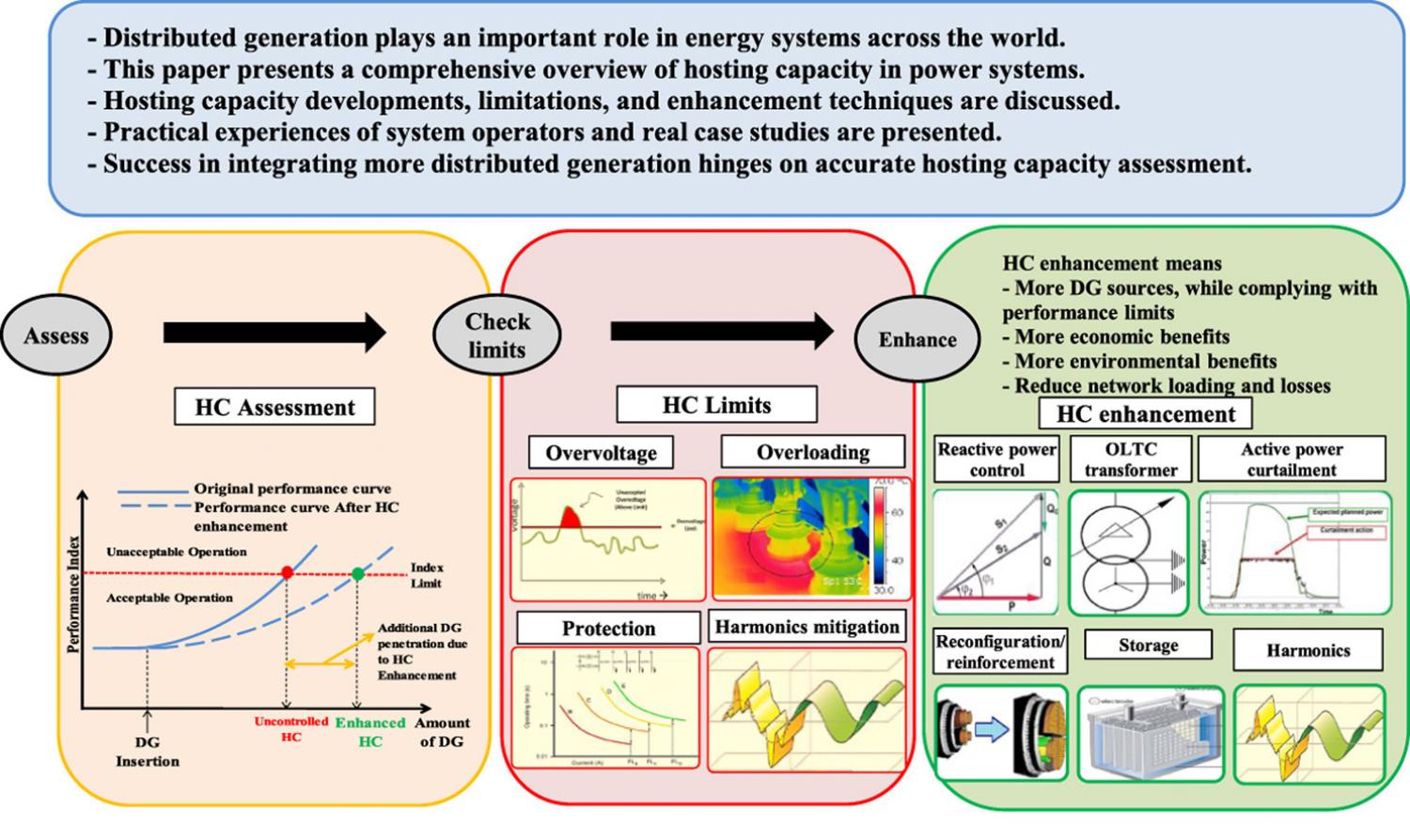
Elsevier, Renewable Energy, Volume 130, January 2019
Currently, renewable energy is rapidly developing across the world in response to technical, economic and environmental developments, as well as political and social initiatives. On the other hand, excessive penetration of distributed generation (DG) systems into electrical networks may lead to various problems and operational limit violations, such as over and under voltages, excessive line losses, overloading of transformers and feeders, protection failure and high harmonic distortion levels exceeding the limits of international standards. These problems occur when the system exceeds its hosting capacity (HC) limit. The HC is a transactive approach that provides a way for the distribution network to be integrated with different types of energy systems. Accordingly, HC assessment and enhancements become an essential target for both distribution system operators and DG investors. This paper provides, for the first time, a systematic and extensive overview of the HC research, developments, assessment techniques and enhancement technologies. The paper consists of four HC principal sections: historical developments, performance limits, perceptions and enhancement techniques. Besides, practical experiences of system operators, energy markets and outcomes gained from real case studies are presented and discussed. It was concluded that success in integrating more distributed generation hinges on accurate hosting capacity assessment.
